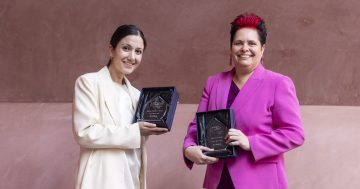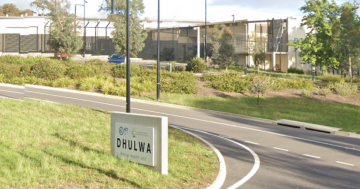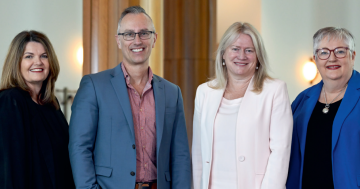
This year marks the 30th birthday of the Women’s Health Service (WHS), run by ACT Health.
Back in 1987, when Kylie Minogue was doing the locomotion and Bob Hawke was promising that “no child will be living in poverty by 1990”, the Canberra Women’s Health Network was busily working with the ACT Health Authority to establish a pilot Women’s Health Centre in Canberra. The Women’s Health Service began in three locations, and in 1988 it received permanent funding and moved to two locations (Tuggeranong and City).
Today, WHS has one location in the city, and provides outreach services. It has 6 counsellors, 3 administrative staff, 2 registered nurses, a culturally and linguistically diverse liaison nurse, nurse practitioner, counselling team leader, GP, dietitian, and a service manager. WHS also links women with other services.
The 30th birthday celebrations last Wednesday morning opened with a sung acknowledgement of country by A Chorus of Women, to great appreciation by the WHS staff, former staff, and supporters gathered. The words for the acknowledgement were written by Hazel Hall, a local poet. The morning also included a poem and songs by WHS clients, and a moving account from a young woman of the impact the service has had on her life and health.
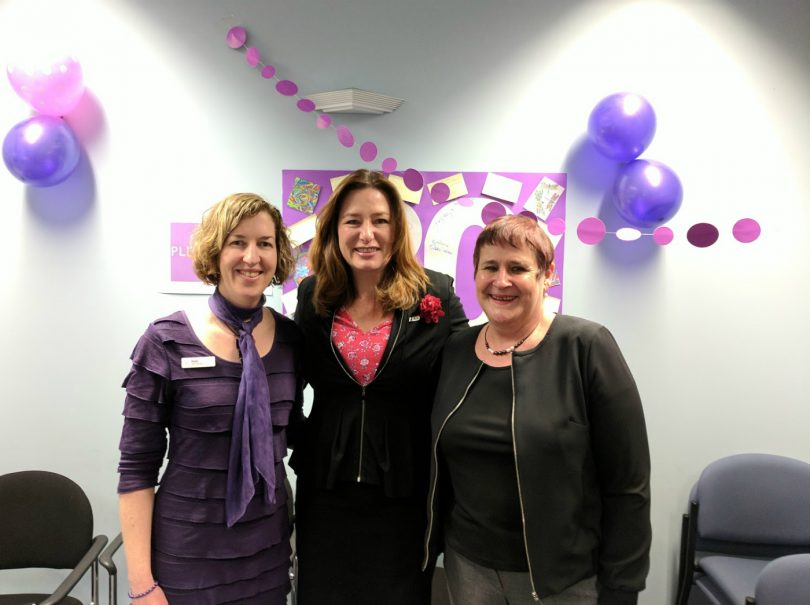
Nikki Goddard – Manager, Women’s Health Service; Minister Yvette Berry; Marcia Williams – CEO, Women’s Centre for Health Matters. At the WHS 30th birthday celebration.
At the celebrations, Minister Yvette Berry said that “the role of the Women’s Health Service is critical in connecting women up” to services that can help them when they have been victims of domestic and family violence. She also talked about the plans for the Family Safety Hub, and the importance of sport participation for the health and wellbeing of girls and women.
WHS provides health checks and advice, medical care from a GP and nurse practitioner, nutrition, and counselling services to vulnerable women in the ACT and surrounding region. These include women who have difficulty accessing health services due to:
- Violence, abuse or neglect
- Identifying as being of Aboriginal or Torres Strait Islander origin
- Language or cultural barriers
- Homelessness or risk of homelessness
- Substance abuse issues
- Mental health issues
- Disability
- Sexual identity issues
WHS found that trauma was the root cause of many of the health problems women needed help with, and that counselling is important in supporting their healing.
“Women are often very alone with their experiences of violence, and by coming to a service where there are other women with similar experiences, they realise that many other women experience violence as well. Women build an understanding that they are not alone,” WHS staff member Megan Taylor said.
A note on display from a client described the impact that WHS had on her life:
“I have felt accepted, respected, and welcomed. My counsellor offers an understanding and supportive environment, so I feel safe to open up and explore. The fact that this is a service offered for women, by women, allows all of this to happen in such a gentle and supportive and professional way. Thank you.”
Demonstrating how important WHS has been in women’s lives over three decades, a number of the staff and advocates from the early days of the service returned for the celebrations. They included Christine Larkin, the first social worker in 1987; Joy Renshaw, the first nurse; Patricia O’Hanlon, a receptionist; Jane Ingall, Women’s Health Network advocate for the service; and Monica King, who started with the service in its early years and is the longest serving current staff member with 27 years of service.
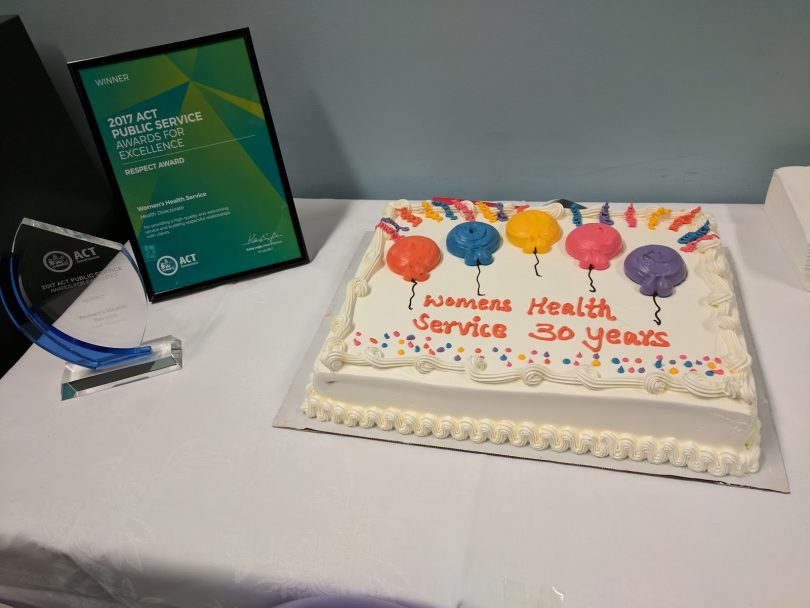
WHS still operates with today with the same ideals as its original founders. Safety, trust, and transparency are at the heart of its services, and it works collaboratively with women and with other services to provide quality care. WHS works to empower women’s choices and voices, and to build understanding around cultural, historical, and gender issues. We hope it continues for many years to come.
More information on accessing the Women’s Health Service, including hours and locations.














